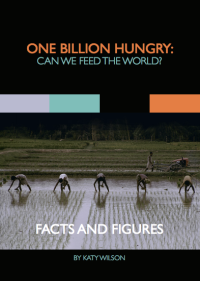 A major challenge for those working in international development is being able to understand the lives and needs of people in developing countries and being able to understand the challenges facing global decision makers. More and more online games are being developed by the international development community to help us gain insight into global development challenges and increase engagement around these issues, albeit in a virtual world. Here’s a list of some of these online games.
A major challenge for those working in international development is being able to understand the lives and needs of people in developing countries and being able to understand the challenges facing global decision makers. More and more online games are being developed by the international development community to help us gain insight into global development challenges and increase engagement around these issues, albeit in a virtual world. Here’s a list of some of these online games.
- Cyber Nations – Allows you to create and rule a nation, choosing a government type, a national religion, tax rate and more. You can choose and purchase infrastructure, land to expand your borders, technology to increase your effectiveness, and military to defend your national interests. You can build trading ports to enhance your ability to trade with other nations, build clinics and hospitals to increase your total population, invest in schools and universities to increase your people’s literacy rate and choose which economic sectors to support. See how your developmental decisions affect your population’s happiness.
- Climate Challenge – You are the president of the European nations and must tackle global climate change from 2000 to 2100. You choose Europe’s policies and try to persuade competing regional blocs to reduce their carbon emissions.
- African Farmer: The Game – Allows you to simulate the complex decisions and uncertainties faced by small-scale farmers living in Sub-Saharan Africa. Your challenge is to manage a farming household in a village by making decisions on what to grow, what to buy and how to feed your family all while managing emerging threats such as price rises, bad weather and disease. See how your decisions affect your family’s welfare.
- Food Force 2 – Aims, through the development of a storyline, to make people more aware of hunger-related problems in under developed nations and of the work of the World Food Programme. The game is aimed at educating and motivating people to solve world hunger and achieve self-sustenance.
- Spin the Plate – A tool developed to increase understanding of the problems of micronutrient deficiencies or hidden hunger. By investigating common meals from around the world, the game aims to educate on what vitamins and minerals many children are missing in their diets as well as on the work of the Micronutrient Initiative.
- Third World Farmer – A game meant to be both educational and provocative, it lets you investigate the challenges facing farmers in poor countries such as corruption, lack of access to resources, war, drought, disease and market failures. The aim is to motivate discussion and understand better our role, wherever we are, in contributing to the eradication of hunger and poverty.
- Stop Disasters! – Aims to engage children in learning how to build safer villages and cities, covering different factors that can mitigate the impacts of disasters such as location of buildings and their construction materials, early warning systems, evacuation plans and education. The aim of the game is to plan and construct a safer environment for your population, assess disaster risk and try to limit damage when natural disasters strike.
Of course the question is whether these games, really lead to a better understanding of development challenges? One article investigates how such games, designed to engage young people, can be better designed to really inspire change, emphasising that it is through the making rather than the playing of such games that young people can be truly empowered. While games present an opportunity to interact and learn in a fun way, true social impact will require a multi-instrument approach that includes participation, creation and ownership of these tools.









Leave a comment